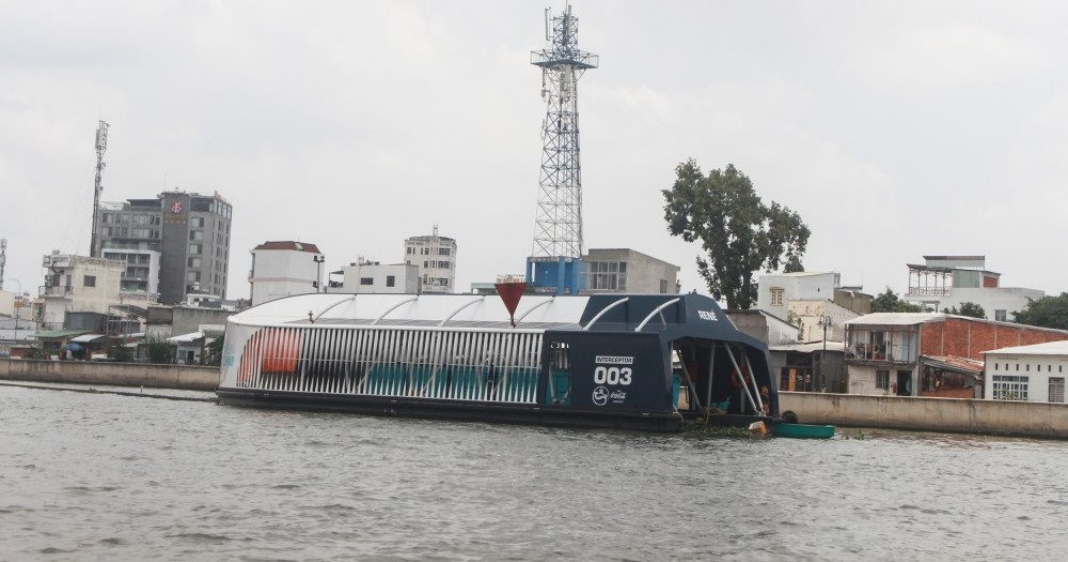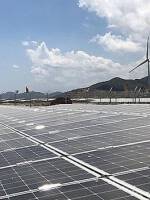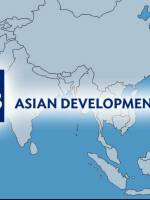
Environmental pollution, water scarcity, and climate change are, needless to say, the biggest challenges for humankind, let alone the huge risks posed to economic growth, and over the years, multiple initiatives have been launched to address such existential issues. Numerous enterprises have therefore sought to shift their businesses to sustainability modes, with the circular economy being the desirable choice.
Coca-Cola Vietnam is one of such front-runners, having launched many programs to pursue sustainable development and environmental protection.
Protecting Can Tho River
May 29, 2023 was the day that marked the one-year anniversary of launching The Ocean Cleanup’s Interceptor in the Can Tho River as a partnership between the Coca-Cola Company and The Ocean Cleanup, the latter being an international non-government organization for removing plastic waste from rivers worldwide. The initial success of this partnership was summed up in a short video clip named “River Tales.”
River Tales is a four-minute documentary produced by Coca-Cola about the Interceptor technology deployed in the Mekong Region. It sheds light on how plastic pollution is impacting the Can Tho River and the opportunity to make a tangible difference through technology and community action.
Interceptor 003 was first launched into the Can Tho River in December 2021 and is operated by the Department of Natural Resources and Environment of Can Tho City. Positioned downstream from Can Tho Floating Market, the Interceptor has collected an estimated 120 tons of waste in its first year of deployment.
The Interceptor was able to collect some eight tons of waste a day. River waste flowing with the current is guided by the barrier towards the opening of the Interceptor. Thanks to the Interceptor’s catamaran design, the water flow path is optimized to pass through the system, carrying the plastic onto the conveyor belt.
All electronics on the Interceptor, including the conveyor belt, shuttle, lights, sensors, and data transmission, are solar-powered and thus are pollution-free. The Interceptor is internet-connected, allowing the operator to gather continuous performance and collection data and automatically notify local operators once the dumpster is full.
“The project in Vietnam has proven to be a valuable learning experience for our partnership, which we apply to follow-up deployments in other rivers around the world,” said Tames Rietdijk, river director at The Ocean Cleanup. “I am looking forward to continuing our work as partners on our mission to rid the world’s oceans of plastic and lay the foundation to tell many more River Tales after this first beautiful story about Interceptor 003 in Can Tho.”
The launch of the Interceptor in the Mekong Delta is just one among numerous initiatives by the global beverages maker The Coca-Cola Company and its subsidiary Coca-Cola Vietnam.
Sustainability and circular economy
Last year, Coca-Cola Vietnam introduced bottles made from 100% recycled PET plastic (rPET), excluding caps and labels, across the country. This effort enables the company to reduce some 2,000 tons of virgin plastic grain that is otherwise needed to produce bottles for its beverage products, and more importantly, it helps prevent plastic waste from being discharged into the environment.
Speaking to the local media, Leonardo Garcia, general manager of The Coca-Cola Company in Vietnam and Cambodia, stressed that the company wanted to ensure that all Coca-Cola plastic bottles are recycled to advocate for the circular economy in Vietnam.
“We alone cannot address this challenge, so we are working with partners, the Government and experts in the industry to scale up the technology to make Coca-Cola packaging items more sustainable,” he noted.
One of the key solutions, according to the CEO, is to raise public awareness about the benefits of recycling.
The company is committed to creating shared value in the communities it serves by ensuring that sustainability is at the core of its business operations. Coca-Cola continues building sustainable communities in locations where the company operates.
On August 27, 2022, for example, Coca-Cola Vietnam held the campaign “For a Vietnam without Waste” in Thu Duc City’s EKOCENTER to disseminate the message of how to deal with waste. At the event, the company donated 65 waste segregation bins to the HCMC Department of Natural Resources and 4,000 multiple-use bags to the HCMC Department of Industry and Trade, with a total value of VND700 million.
Days earlier, the company also launched a similar event in Danang City, with the common purpose of raising public awareness on sorting waste at source and encouraging residents to adapt to green living and sustainable consumption.
Since 2010, Coca-Cola has invested millions of dollars in community projects in Vietnam. This includes programs such as the EKOCENTER, providing clean water, empowering women and local SMEs, supporting families in hardship, and sending disaster relief.
In recent years, Coca-Cola Vietnam has cooperated with several partners, such as Green Hub and other recycling units, to assist with the collection of plastic waste. It has also supported UNESCO programs since 2020 to map out creative measures for plastic waste management in the world-recognized Cu Lao Cham-Hoi An Biosphere Reserve in Quang Nam Province and Cat Ba Biosphere Reserve in Haiphong City.
Coca-Cola Vietnam’s campaign “For a Vietnam Without Waste” is aligned with the parent firm The Coca-Cola Company’s World Without Waste campaign with three fundamental global goals of making 100% of its packaging recyclable globally by 2025 and using at least 50% recycled material in packaging by 2030; collecting and recycling a bottle or can for each one sold by 2030; and working together to support a healthy, debris-free environment.
Commenting on the success of this initiative after a year’s launching, Leonardo Garcia, general manager of The Coca-Cola Company in Vietnam and Cambodia, stated: “We are proud of this unique partnership… River Tales shines a light on this partnership in Vietnam as we work together to make an impact and expand technological solutions that prevent plastic waste from entering the ocean further in Southeast Asia and beyond.”
Hoang Khang




